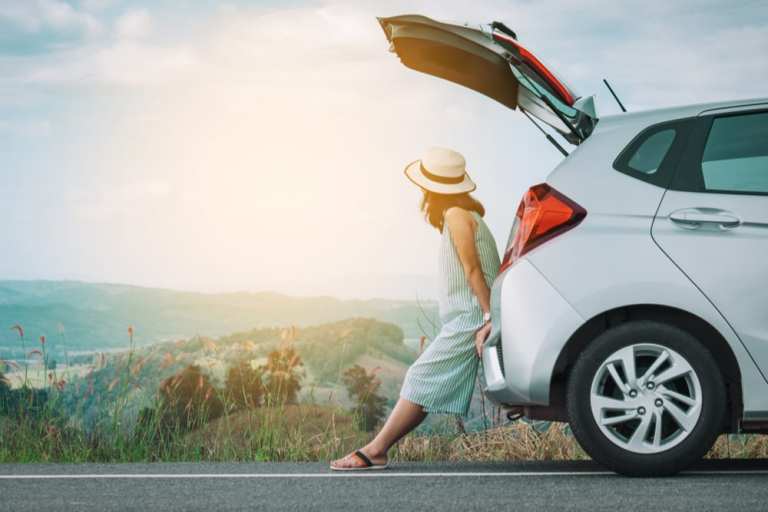The Great (Muted) Fourth Of July Holiday Trek

Not planes.
Not trains.
Automobiles.
The question becomes: What happens once we get where we are wheeling — amid the great summer trek of 2020?
You may not be reading this because you are on the road, possibly bumper to bumper, cursing the pandemic for making holiday travel feel nothing like the getaway you and the family had coveted (unless you’re using COVID-19 as a convenient way to really socially distance).
We’re in the long Independence Day weekend, of course. The coronavirus has taken a bit from holiday travel, as AAA estimates that we’ll see the first decline in the season’s travel in 11 years.
(You may recall that 2009 was part of another economic downturn.)
The headline numbers show that, per AAA, overall travel will be down 15 percent during the July through September season. That equates to 700 million trips. Most people will want to travel by car, at 97 percent, which is down 3 percent compared to last year. Air travel will be off by as much as 74 percent, said AAA, rail and cruise by about 86 percent.
To be sure, autos have been the favored mode of travel, accounting for 87 percent of trips through the past five years.
As to where we are headed, AAA said that cities such as Orlando, which are typically destinations for mass travel are not as high on the list as they once were. Orlando, for example used to be the top-searched city destination in years past; more recently it’s slipped to the eighth spot. Conversely, Denver, Colorado, made the leap from the 10th spot to No. 1.
And once we get where we are going, many cities — such as Las Vegas — are hotel destinations, although AAA noted that advance bookings are 25 percent shorter at this time than last year.
Staying relatively local has also been top of mind, according to Airbnb. The company said that since the beginning of April, over 60 percent of all domestic U.S. bookings have been for trips within 300 miles from the origin. Drilling down into the here and now, the firm said that over 20 percent of bookings over the Fourth of July weekend are in listings in rural areas, including the Adirondacks.
“Based on current booking patterns, we expect that no one destination will account for more than 3 percent of guest arrivals in the U.S. over the holiday weekend,” said Airbnb.
We also may be looking to get a bit rustic, at least if search results are any indication. Airbnb said cabins are among the most-searched listing types for trips during the Fourth of July weekend, at least as measured from June 1 to June 20. Luxury gets a nod too — specifically, search activity leaped notably for chalets (64 percent growth), cabins (63 percent growth), islands (48 percent), barns (42 percent) and cottages (37 percent).
Public health officials have been warning against gatherings such as barbecues and fireworks. That may lead to many of us doing the same things we’ve been doing since the pandemic upended everything.
As PYMNTS reported last month in a survey of more than 2,000 consumers, 35.7 percent of U.S. consumers are now buying retail goods online as of May 23, compared to 29.2 percent who did so on April 11.
The share of consumers ordering from restaurants online has also increased, reaching 21.3 percent on May 23, up from 13.3 percent on April 11. The doorstep where those deliveries end up may be new and temporary this holiday weekend — but no matter the locale, the shift in online behavior is likely to stick.